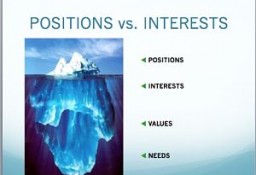We are social beings with an inherent, natural desire for connection and attachment to other humans. One of the core functions of work is to provide us with a broad social connection to our world, as well as more intimate connections with our colleagues, clients, and others. When we lose a job, we often lose key relationships that can add to a sense of isolation, even loneliness.
At work, we experience a range of relationships–positive and negative, simple and complex, routine and unusual. These experiences can energize or drain us. We go through periods of harmony and conflict. Learning to manage our workplace relationships is a key skill for career survival and advancement.
We might strive for harmony, but work is often a theatre of conflict because there are competing interests at every level. Conflicts arise between colleagues seeking to advance their careers in a hierarchy with limited opportunities; between employer priorities and employee needs; between employer policies and union rules; between company deadlines and technological failures…and so on.
Learning to resolve conflict is part of managing our workplace relationships. In our recent free webinar 3 Secrets of Conflict Competency,* we learned about the difference between Positions and Interests, as the single most important part of preparing for any negotiation or effort at Conflict Resolution.
Clarifying your own interests is often one of the few things in your control.
You may not be able to discover what the real underlying interests of the other side are but at least you can clarify your own interests. For example, as a front-line supervisor, we might seriously object to a subordinate’s performance and characterize him or her as incompetent, unreliable, undependable…so we take the position that they must be terminated. However, we may not have the authority to fire or layoff that individual, so our position hardens, poisoning our milieu at work, increasing tension and conflict.
We can reduce these negative effects on ourselves and others by focusing on our interests as they relate to the employee’s performance. Our interests might include the following notions:
- He breaks all the rules about hours of work and personal calls which undermines my leadership;
- I am worried about losing my job because of declining sales;
- He could be making more money for the company than he is and I can’t seem to motivate him.
These interests reveal a range of needs and values—e.g. authority, job security, leadership ability. Understanding the needs and values represented by an individual’s interests now uncovers a range of solutions that will meet all or some of the interests of both parties. Interests are what a person really wants!
In summary, positions are responses or actions a person will take to meet their needs. Taking a position closes off communication and reduces the opportunity to find a mutually satisfying solution. If you are caught in a conflict, your task is to clarify your own interests first, and then uncover those hidden interests of the other party.
Interests are needs, concerns, and values that motivate each person. By understanding and communicating the interests of both parties, you have a very good chance of resolving the conflict.
* Note: For Webinar Link. Select ‘Click Here to Listen In’ then select ‘View presentation with audio’ to see slides with audio. If clicking on the link doesn’t work, try copy-and-paste link into your browser.

